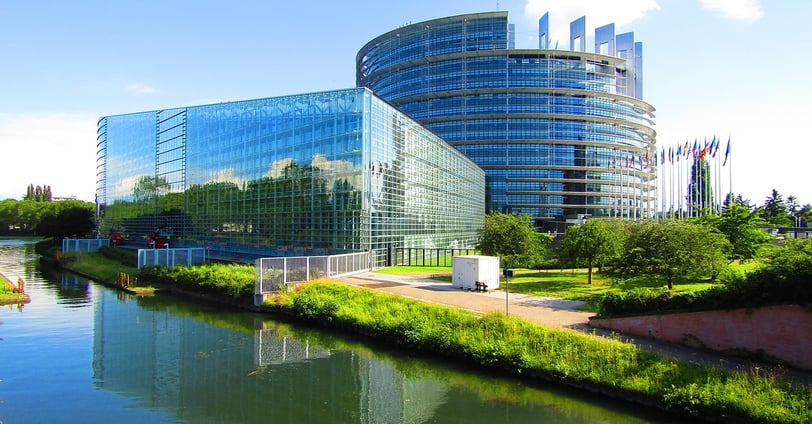The European Parliament: Navigating a New Legislative Era
The newly formed European Parliament, marked by a surge in far-right groups and the re-election of centrist leader Roberta Metsola, faces significant challenges in addressing issues like the Ukraine conflict, climate policy, and economic recovery amidst increasing political polarization.
POLITICS


The European Parliament, often described as the beating heart of the European Union (EU), has recently entered a new legislative term, marked by significant political shifts and emerging challenges. As the body responsible for shaping EU-wide policies, the Parliament's latest session, which began in July 2024, has set the stage for what many expect to be a tumultuous five years. This article delves into the key developments, power dynamics, and challenges that are poised to define this new era in European governance.
The 2024 European Elections: A Shift in Power Dynamics
The 2024 European Parliament elections, held from June 6-9, brought about significant changes in the composition of the legislative body. The elections resulted in the formation of the 10th European Parliament, which now includes 720 Members of Parliament (MEPs) representing a diverse array of political affiliations and ideologies. Notably, the elections witnessed a surge in support for right-wing and far-right groups, which now hold a substantial portion of the seats. This shift has raised concerns about potential legislative gridlock and increased polarization within the Parliament.
One of the most striking outcomes was the formation of new far-right groups, such as "Europe of Sovereign Nations" and "Patriots for Europe," which have collectively secured a significant presence in the hemicycle. These groups, characterized by their staunch opposition to migration, feminism, and the EU's Green Deal, are expected to challenge the centrist and pro-European factions that have traditionally dominated the Parliament. The rise of these groups is likely to test the Parliament's ability to maintain a cohesive and effective legislative process, as mainstream parties continue to enforce a "cordon sanitaire" to prevent far-right influence in key positions.
Roberta Metsola's Re-Election and the Centrist Strategy
Despite the challenges posed by the far-right, the European Parliament saw a smooth transition of leadership with the re-election of Roberta Metsola as its President. Metsola, a Maltese politician from the European People's Party (EPP), secured her position with a decisive majority, reflecting broad support across the political spectrum. Her re-election is seen as a stabilizing factor in the Parliament, especially in light of the growing polarization.
Metsola's leadership will be crucial in navigating the complex political landscape of the new Parliament. Her moderate stance and diplomatic skills have earned her respect from both allies and opponents, making her a key figure in efforts to maintain unity within the institution. However, the coming years will undoubtedly test her ability to manage an increasingly fragmented Parliament.
Challenges on the Horizon: Ukraine, Climate, and Economic Policies
As the Parliament begins its new term, several pressing issues are expected to dominate the agenda. Chief among these is the ongoing war in Ukraine, which remains a critical concern for the EU. The Parliament's first resolution of the new term reaffirmed its unwavering support for Ukraine, urging member states to intensify military aid and accelerate the country's EU accession process. This stance reflects the Parliament's broader commitment to maintaining a unified front against Russian aggression, despite the potential for dissent from newly elected far-right MEPs.
Climate policy is another area where the Parliament will face significant challenges. The EU's ambitious Green Deal, which aims to make Europe the first climate-neutral continent by 2050, has been a cornerstone of the bloc's policy in recent years. However, the rise of anti-Green Deal factions within the Parliament could complicate efforts to advance climate legislation. The new term will likely see intense debates over the balance between environmental sustainability and economic growth, with implications for both EU citizens and global climate efforts.
Economic policies, particularly those related to post-pandemic recovery and digital transformation, will also be at the forefront of the Parliament's work. The EU's economic resilience and competitiveness on the global stage will depend on the Parliament's ability to pass effective legislation in these areas. However, the growing ideological divide within the Parliament could pose obstacles to achieving consensus on critical economic measures.
The Role of the European People's Party and Centrist Forces
The European People's Party (EPP), which remains the largest political group in the Parliament, will play a pivotal role in shaping the legislative agenda. The EPP's leadership, under the guidance of figures like Roberta Metsola and Manfred Weber, is expected to focus on promoting centrist policies that can garner broad support across the political spectrum. However, the EPP will need to navigate the challenges posed by both the far-right and far-left factions, which are likely to push for more radical changes.
The EPP has already signaled its intention to maintain a strong presence in key EU institutions, including the European Commission. The re-election of Ursula von der Leyen as Commission President, backed by the EPP, reflects the group's influence in EU decision-making. However, the EPP's dominance will be tested by ongoing negotiations over high-profile appointments and the need to build coalitions with other centrist and progressive forces.
Conclusion
The new European Parliament faces a challenging road ahead, with significant political shifts and pressing global issues demanding attention. As MEPs settle into their roles, the institution's ability to navigate these challenges will be crucial for the future of the European Union. With the rise of far-right forces, the re-election of key leaders like Roberta Metsola, and a packed legislative agenda, the next five years are set to be a defining period for the European Parliament and the EU as a whole.
